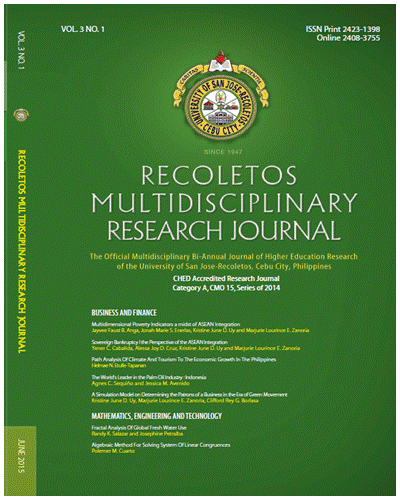Considering Knowledge in Integration: Evidence from the ASEAN Member Nations
DOI:
https://doi.org/10.32871/rmrj1503.01.13Keywords:
knowledge, knowledge level, ASEAN, ASEAN member nationAbstract
The remarkable growth of human knowledge is perhaps the greatest key to achieving what one wants, or what the whole economic society wants. Recognizing knowledge as one of the critical factors for economic advancement in the most multilateral organization in Asia, this study evaluates the indicators which determine the knowledge level of the ASEAN member nations. The study takes a look at factors that are predominant in the countries involved, in terms of general competency, inventions and innovations, and technological advancement. Data relating to high technology exports, human development, research and development, journals, researchers, and patents are taken
into consideration to quantify these factors in the assessment of the knowledge level of a country. These indicators are considered significant measures of a country’s intellectual standing, emphasizing that one should focus on these measures for the attainment of its advancement in the competitive organization.
References
final pit limit definition. Mining Engineering, 60(10), 44-49. Retrieved from http://search.proquest.com/docview/232294399?accountid=33262
Lee, C. C., & Yang, J. (2000).Knowledge value chain. The Journal of Management Development, 19(9), 783-793. Retrieved from http://
search.proquest.com/docview/216349658?accountid=33262
Seba, I., & Rowley, J. (2010).Knowledge management in UK police forces. Journal of Knowledge Management, 14(4), 611-626. doi:http://
dx.doi.org/10.1108/13673271011059554
Thomas Menkhoff, Hans-Dieter Evers, ChayYueWah (2011). Beyond the Knowledge Trap:Developing Asia’s Knowledge-based Economies
http://wdi.worldbank.org/table/5.13
http://economictimes.indiatimes.com/definition/
human-development-index
http://data.worldbank.org/indicator/IP.JRN.ARTC.SC
http://data.worldbank.org/indicator/TX.VAL.TECH.CD
http://www.oecd-ilibrary.org
http://www.businessdictionary.com/
http://data.worldbank.org/indicator/GB.XPD.RSDV.GD.ZS
http://www.oecd.org/sti/sci-tech/1913021.pdf
http://www3.qeh.ox.ac.uk/pdf/qehwp/qehwps49.pdf
http://unesdoc.unesco.org/images/0022/002267/226757e.pdf
http://en.nrct.go.th/en/Events/inventorsday.aspx
Alavi, M., &Leidner, D. E. (2001). Review: Knowledge Management and Knowledge Management System: Conceptual Foundations and Research Issues. 25(1), 107-136
King, W.A., & Zeithmal C. (2003).Measuring Organizational Knowledge: A Conceptual and Methodological Framework, Strategic Management Journal. http://www.kmworld.com/Articles/Editorial/What-Is-.../
What-is-KM-Knowledge-Management-Explained-82405.aspx
Downloads
Published
How to Cite
Issue
Section
License
Copyright of the Journal belongs to the University of San Jose-Recoletos


